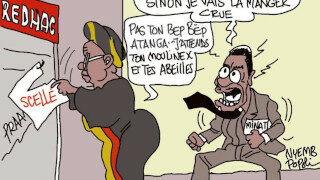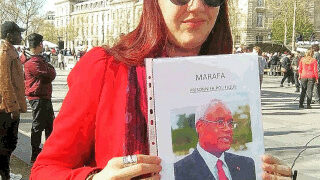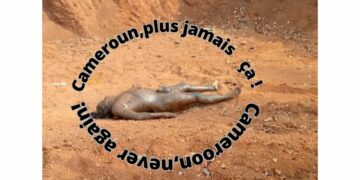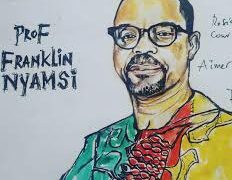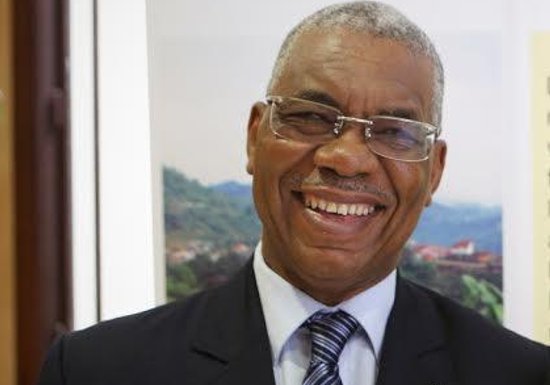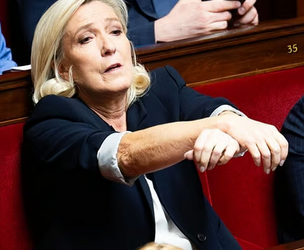Par Olivier Tchouaffe, PhD, Porte-parole du CL2P
Après l’enquête parue dans le mensuel La lettre du Lettre du Continent sur les «vacances de travail» régulières et répétées de Paul Biya en Suisse dans une suite présidentielle de l’hôtel intercontinental et intitulée «Comment Biya préside de Genève, onzième région du pays» Il devient important d’apporter un éclairage et une correction sur une pièce qui semble trop complaisante à propos de la folie des grandeurs d’un vieux nègre, une personne dont la satisfaction des caprices vient toujours naturellement avant la nation, et une tragédie dont les Camerounais ordinaires vivent dans leurs chairs.
Aussi concentrons-nous sur ces rituels vides qui sont maintenant associés à un État du Cameroun au service exclusif de Paul Biya.
La bonne source d’inspiration en la matière n’est autre que le célèbre roman de Ferdinand Oyono, Le Vieux Nègre et la médaille, qui dépeint avec justesse et profondeur comment l’État camerounais s’est fourvoyé depuis le début et de façon spectaculaire. Ce roman nous oblige surtout à porter un regard critique et à avoir une débat sans concession sur le poids de l’héritage du colonialisme et la construction d’un environnement social qui opprime les Camerounais à partir de la constitution subséquente de régimes postcoloniaux, intrinsèquement liés à l’héritage de l’expérience de la plantation néo-coloniale biopolitique, et déguisés en États-nations dits ou voulus modernes.
En effet, une vraie perception de la réalité nécessite une dialectique entre notre propre subjectivité et la construction sociale qui nous entoure. Le problème avec Meka, le vieux nègre, c’est qu’il interprète tout autour de lui comme «naturel» (allant de soi). Il ne comprend pas la politique (le système politique) derrière l’octroi d’une médaille de pacotille par le maître colonial. Dans ce même processus, il naturalise l’attitude condescendante du maître colonial et considère comme naturel sa propre place d’éternel subalterne dans la hiérarchie coloniale. C’est comme ça que la colonisation pour Meka devient “naturel”, tout comme la place qu’il occupe dans ce système arbitraire.
Ainsi, il accepte comme normal la création autour de lui de rituels vides.
En tant que tel, ces rituels vides fonctionnent comme des formes d’illusion idéologique qui soumettent Meka à une espèce de religion envers l’État, à travers le pouvoir talismanique de la médaille. De la même manière, les chefs africains vendaient les esclaves en échange de Pacotille et du culte des cargaisons où les rois Africains commençaient à fétichiser des objets bon marché en provenance d’Europe et à les imprégner d’un pouvoir talismanique. C’est le marché Faustien dans lequel l’Élite Africaine s’est engagé pour avoir accès à la modernité; un accès a la modernité construit essentiellement sur les dos des esclaves Africains et l’idéologie que tout ce qui vient d’Europe est suprême, dévaluant d’office toute forme de production locale.
La même chose peut être dite aujourd’hui où l’Élite Africaine qui s’éduque, se soigne, et prend ses vacances en Europe, ne daigne jamais en faire de même en Afrique. La Suisse aussi est une bonne destination pour cacher l’argent volé sur le continent, notamment en raison des règles strictes protégeant le secret bancaire.
C’est dans ce contexte que l’on peut comprendre les rituels vides que Paul Biya (85 ans et 35 ans au pouvoir) a créés autour de ses «vacances-travail» prolongées dans un hôtel luxueux en Suisse. Ces vacances prolongées font désormais partie de l’État régalien camerounais, mais ne sont en réalité que des rituels vides qui coûtent une fortune nationale aux contribuables camerounais, tout en leur donnant ou renvoyant l’illusion d’une activité débordante et d’une modernité pour un régime politique fossilisé et foncièrement improductif.
Olivier Tchouaffe, PhD, Porte-parole du CL2P
[spacer style="1"]
English version
Cameroon: Le Vieux nègres (The Old negro) and the Empty Rituals
By Olivier Tchouaffe, PhD, Spokesman of the CL2P
After La Lettre du Continent’s inquiry into Paul Biya regular and repeated “working vacations” in Switzerland and titled “Comment Biya Preside Depuis Geneve, Onzieme Region du pays” It has become important to give a rebuttal and a corrective to a piece that appears to be too complaisant about the folly of Le Vieux negre. A person who, naturally, his own predicament always comes before the nation, a tragedy that ordinary Cameroonians can really relate to.
For a start, one has to focus on the empty rituals that come to be associated with Biya’s regalian state. How these rituals serve to mask notions of voluntary servitude and conditioning oppressive forms of reality to emphasize the knowledge that reality and the production of subjectivity require dialectical processes to combat ideological illusion to break out of the circle of conventional forms of representation.
As Ferdinand Oyono’s prescient novel The Old man and the medal depicts with depth how the Cameroonian state went spectacularly wrong and how its most zealous and vigorous supporters failed to notice it for the ways in which domination was hegemonized and naturalized. Then, makes it obligatory the discussion about the weight of colonial legacy and the construction of a social environment that conspire to create the dehumanization of a person standing for subaltern politics. How the denial of enunciation and political perspectives is deeply embedded in the power logics and the psyches of the oppressed in post-colonial regimes intrinsically linked to the legacy of the neo-biopolitical plantation experiment as modern nation-state.
Indeed, a true perception of reality require dialectic between our own subjectivity and the social construction around us. The problem with Meka, the old Negro, is that he interprets everything around him as “natural.” He does not understand the politics behind receiving a fake medal from the colonial master. In the process, he naturalizes the condescending attitude of the colonial master and naturalizes his own subservient place within the colonial hierarchy. In the process, colonization for Meka becomes a “natural” and so does the place he occupies within that arbitrary system. Thus, he accepts the reality creating around him as normal and so the empty rituals organize around him. As such, the colonial comes to stage empty rituals as forms of ideological illusion and coopt Meka’s subservience into a form of religion worshipping the state through the talismanic power of the medal. The same way, the African chiefs sold the slaves in exchange of pacotille and the cargo cult where Africans Kings began to fetishize cheap objects coming from Europe and imbuing them with talismanic power. This is the kind of Faustian bargain the African elite had to make to be accepted as modern. It is a modernity built on the backs of the African slaves and the same can be said today where the African elite hide their money in Europe and never vacation on the African continent.
It is within that context, that one can understand the empty rituals that Paul Biya, 85 years old and 35 in power, has created around his extended “working vacation” in Switzerland. This extended vacation is now part of the Cameroonian’s regalian state but in fact it is an empty rituals that cost Cameroonian taxpayers a gigantic amount of money to give the illusion of movements and modernity of a fossilized and unproductive regime.
Olivier Tchouaffe, PhD, Spokesman of the CL2P




